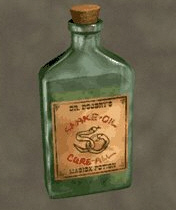 Yeah. Yeah. You’ve heard it all and everybody is trying to sell you something. The snake oil salesmen are all around. Washington is no different. The lie continues to spread that investing your money in banks or the latest government bonds are safe and sound investing. Think again.
Yeah. Yeah. You’ve heard it all and everybody is trying to sell you something. The snake oil salesmen are all around. Washington is no different. The lie continues to spread that investing your money in banks or the latest government bonds are safe and sound investing. Think again.
The problem is that we have a ‘dumbing down’ of the American economic system as foreign investors pile on to invest their otherwise worthless American greenbacks and you are the one that will suffer through devaluation and hyperinflation because you base your life on money and monetary acquisition that central bankers run. Your economic livelihood and future is at stake if you have piles of money or owe piles of money. That applies to most Americans. Your investment is an illusion, the same as the thin air that central bankers and banks have created.
The fact remains that there is little monetary defense or value in trying to tell the average American that they can somehow defend their monetary wealth when the central bankers continue to erode that wealth into nothing in a hopelessly compromised financial system. Central bankers are riding the dark horse as they plow the dollar into non-existence so that they can rebuild a new monetary system from the ashes they have created. Naturally, this is to their advantage. The sad thing is that Washington politicians are hopelessly compliant and cooperative in an effort to create a new system from the ashes of your financial lives and years of servitude to their system. We are the fools and most Americans will undoubtedly foolishly listen the advice of the financial sages. What is Washington D.C. up to? CONTROL. What are central bankers up to? CONTROL. Never forget that what you are being told by mainstream politicians and financial media is designed to secure the system over your life or means of livelihood at your expense.
Gold? Unless you hold the nuggets of goodness in your meaty little hand, don’t buy the snake oil. Gold investment certificates aren’t worth a thunder mug full of waste. Remember the old proverb that possession is nine-tenths of the law. In this case, physical possession is your safest bet, but far from perfect. Your stuff is only as secure as you are. The little guy can easily be pulled from his stuff during a crisis.
I am linking to this electroblurb because it is the right thing to do overall. I do not advocate the sales of the product or the conclusion reached. I ask you to read the facts and forget about buying anything that involves a significant portion of your money, devalued or otherwise, because the money you earn represents your life.
 The first bailout was largely unpalatable to Congress, largely because of the reaction of taxpayers. Their rejection of the first bailout also makes lawmakers appear responsible, careful and in control. Don’t kid yourself. A healthy chunk of pork-barrel spending makes almost any Washington legislation go down much easier.
The first bailout was largely unpalatable to Congress, largely because of the reaction of taxpayers. Their rejection of the first bailout also makes lawmakers appear responsible, careful and in control. Don’t kid yourself. A healthy chunk of pork-barrel spending makes almost any Washington legislation go down much easier. President Bush signed the Economic Stimulus Act of 2008 back on February 13, calling his stimulus idea a “booster shot” for the American economy. At the signing ceremony, Bush stated, “The bill I’m signing today is large enough to have an impact, amounting to more than $152 billion this year, or about 1 percent of the GDP (gross domestic product).”
President Bush signed the Economic Stimulus Act of 2008 back on February 13, calling his stimulus idea a “booster shot” for the American economy. At the signing ceremony, Bush stated, “The bill I’m signing today is large enough to have an impact, amounting to more than $152 billion this year, or about 1 percent of the GDP (gross domestic product).”












You must be logged in to post a comment.